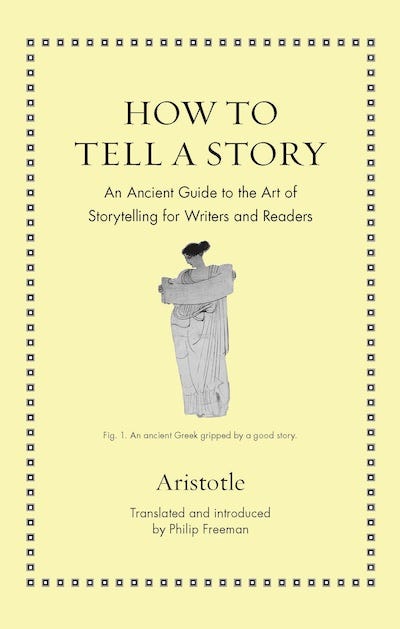[Based on How to Tell a Story: An Ancient Guide to the Art of Storytelling for Writers and Readers, by Aristotle, translated by Philip Freeman. Full book series here.]
Aristotle is such a towering figure in the landscape of western philosophy and intellectual history that during the Middle Ages—both in Christendom and in the Arab world—he was often referred to simply as the philosopher. He was born in Macedonia in an aristocratic family. His father was King Amyntas II’s (Alexander the Great’s grandfather) personal physician.
When his father Nicomachus died, Aristotle, then aged 17, left Macedonia for Athens, where he went to study at Plato’s Academy. He left the school only after Plato’s death in 347 BCE, eventually arriving at the island of Lesbos with the intent to study marine life.
In 342 BCE he was recalled to Macedon by King Philip II, to become the mentor of the teenage Alexander, whom Aristotle managed to influence greatly. When Alexander began his military career and empire building Aristotle returned to Athens to found his own school, the Lyceum.
The death of Alexander brought about a series of struggles for his succession, as well as revived anti-Macedonian sentiments in Athens. In 323 BCE Aristotle prudently left the city, saying that he didn’t want to given its citizens the chance to repeat the same blunder they had made by killing another philosopher (i.e., Socrates) a few decades prior. He died of natural causes in his sixties on the island of Euboea, in the Aegean Sea.
Aristotle wrote about two hundred books, of which only thirty survive. Moreover, he apparently wrote two sets of works, one for the general public and one for his own students. Referring to Aristotle’s public writings, Cicero says that if Plato’s prose was silver, Aristotle’s was a flowing river of gold (Academica I.38.119). Unfortunately, none of those books has reached us. What we have instead are the equivalent of lecture notes, which makes Aristotle notoriously difficult to follow for both ancient commentators and modern readers.
Alfred Whitehead famously said that western philosophy can be understood as a series of footnotes to Plato, and there is some truth to this purposefully exaggerated remark. But there is also a reason why Aristotle has been so prominent for two millennia. He wrote about every conceivable subject, more so even than Plato himself, exploring logic, metaphysics, ethics, political philosophy, aesthetics, the arts, physics, and biology.
Princeton Press’ How to Tell a Story, translated by Philip Freeman as part of the ongoing Ancient Wisdom for Modern Readers series, presents us with a contemporary language version of the Poetics, Aristotle’s study of literature. The book has far more depth than it is implied by the title, which is justified by the fact that at the time pretty much all literature—from epics to tragedies to comedies—was written in verse. In reality, the Poetics contains invaluable advice to anyone who is intent on telling a story, and it is just as valid now as it was 23 centuries ago. Indeed, even contemporary authors who write for new media such as cinema and television could learn a thing or two from this book.
Keep reading with a 7-day free trial
Subscribe to Figs in Winter: a Community of Reason to keep reading this post and get 7 days of free access to the full post archives.





